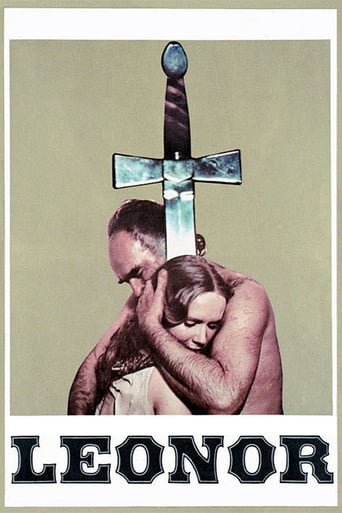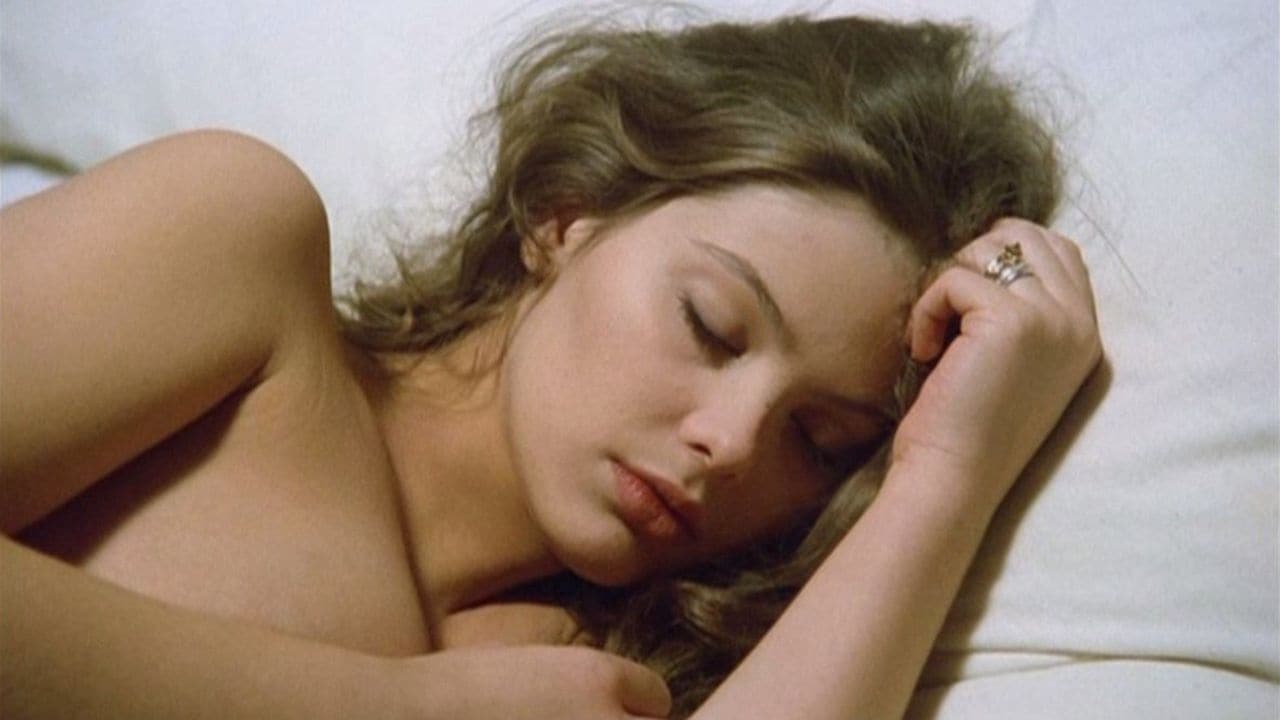moonspinner55
French-Italian-Spanish co-production has widower in 18th century Europe remarrying but unable to forget his first wife Leonor, who died a young beauty after being crushed by her horse (her doctor--a butcher-- believed "bleeding her" was the cure for her comatose state). 10 years pass before the husband believes he has seen Leonor standing by the river. After her crypt is opened, he and his beloved are reunited, but Leonor appears to be in a hypnotic trance until the blood of an innocent child suddenly restores her spirit. Co-written and directed by Juan Buñuel, this mercilessly slow yet intriguing drama has many unusual and unsettling moments. The English dubbing on the US print is stilted, though one can still perceive that the lead performances by Michel Piccoli and Liv Ullmann (and also by Antonio Ferrandis as the wise gardener) are deeply felt. The finale feels truncated--the continuity in the third act is choppy in general--though that may be the fault of the American distributor. Ennio Morricone's lovely title theme is quite similar to his theme two years later for "Exorcist II: The Heretic". ** from ****
MARIO GAUCI
Being an arty example of horror (much more so, in fact, than the same director's poltergeist-themed EXPULSION OF THE DEVIL [1973]), this medieval tale revolving around a Satanic pact that results in resurrection and a spate of vampire killings was considered too atypical for either sensibility and consequently fell through the cracks over the years; then again, such disparaging remarks by popular critics as Leonard Maltin – who labeled it "idiotic", even awarding the film his dreaded (but undeserved) BOMB rating – has not helped the chances for a proper reappraisal much! Indeed, most seemed to be of the same opinion as it prematurely terminated the director's career in mainstream cinema – he would go on to make just one more feature-length film in 1986, an obscure Western entitled THE REBELLION OF THE HANGED – and was restricted to work exclusively in TV thereafter! Though the film is a Spanish/Italian/French co-production, the copy I acquired was mostly dubbed in English with the occasional lapse into Italian (actually, I had first watched it eons ago on late-night TV in the latter language). The presence of Michel Piccoli and Liv Ullman drew obvious parallels with the works of Bunuel's own more renowned father and Ingmar Bergman respectively; the obsessive love lasting beyond the grave shared by the protagonists and the general sense of godlessness on display was clearly up the Spanish Surrealist's alley, while the character-driven downbeat nature of the whole is akin to the austere Swede's chamber dramas.Ornella Muti co-stars as Piccoli's young and lovely second wife who, failing to replace his affection for Ullman, the inconsolable husband coldly eliminates and disposes of. The wanderer-cum-devil he meets soon after was similarly featured in this guise in the contemporaneous ALUCARDA (1975), where he was played by Claudio Brook (a Bunuel Snr. regular!); here, he tells Piccoli that he can bring back his former spouse but asks him to let her rest in peace – naturally, our hero thinks only of himself, and Ullman's return has serious repercussions on both their lives and that of the entire community.The vampirism angle is not rendered explicit and even abruptly handled: no sooner has Leonor re-awakened – the ten-year period is itself seen passing at the bat of an eyelid – that there are a dozen or so kids missing from the village (the inference being that she drains them of blood); in fact, she at first rejects Piccoli's advances but, once she has been nourished, feels quite ready to express passion – this recalls the Sadean credo perhaps best exemplified by the horror classic THE MOST DANGEROUS GAME (1932), when Count Zaroff states something to the effect of "Kill, then love – only then will you have known true ecstasy!". The Inquisition/plague elements which come into play during the latter stages also tie LEONOR to THE MONK (1972), adapted by the elder Bunuel and Jean-Claude Carriere (who also co-wrote this) from Matthew Gregory Lewis's classic novel; incidentally, the protagonists' children here are named after that particular author! Apart from the afore-mentioned Muti, there are three other notable Italian credits – screenwriter Bernardino Zapponi (who was just coming off Dario Argento's DEEP RED [1975]), as well as cinematographer Luciano Tovoli and composer Ennio Morricone, both of whose contribution is essential to the film's stunning recreation of a distant and harsh past. Still, if the film does not emerge a complete success, it is because of the rather unsympathetic characterization of the central figures (the boorish Piccoli in particular), a general lack of incident (as already mentioned, the introspection and feeling of dread would have doubtless gained from a better exposition detailing Piccoli's solitude and Ullman's depredations) and the fact that, frankly, it seems not to have much idea how to end (after being lured into a trap by the locals, the female bloodsucker escapes and makes it back home, where she kills one of her former husband's children and even seems to attack Piccoli but, now presumably afflicted himself, the two of them take off on horseback, one suspects, to spread the vampire plague even further: as with the two versions of NOSFERATU {1922 and 1979}, this much-abused horror device is equated with an all-pervasive - and very real - disease).
lazarillo
Although not strictly a vampire film, this is one of those interesting European combinations of horror and art, typified by "Daughters of Darkness" in the 70's or "Let the Right One In" more recently. The plot involves a a 14th century nobleman who loses his young wife (Liv Ullman) to a horseback-riding accident (and to primitive medical practices of the era). He re-marries and has children, but remains mired in grief and unable to forget his first wife (even though his new wife is played by a Ornella Muti, who would make most men forget their own name). Finally, in a kind of "Monkey's Paw" scenario he manages to actually will her back from the grave, but she's not the same, and a lot of local children begin to mysteriously disappear and it isn't long before his new family is threatened. . .This is more an art film than a horror film, not surprisingly since it was directed by Luis Bunuel's son and features Ingemar Bergman's frequent lead actress and muse. It's more serious than a lot of Euro-horror films, realistically set against the background of the Black Death plague and seriously commenting on the prevailing superstitions of the time (i.e. the fool-hardy medical practices, the witch-burnings). The vampiric element is present mainly in the undead Ullman's predations on peasant children, which recalls the "Bloofer Lady" that the undead Lucy Westeridge becomes in Bram Stoker's original novel "Dracula", an element that has been left out of almost all the subsequent movie adaptations because it't just too disturbing. It's also really quite heartbreaking to see the maternal instinct so corrupted, and to see undying love gone so horribly wrong.This movie has, unfortunately, kind of fallen through the cracks between art and horror. It is not as exploitative as Jean Rollins sex-and-blood-soaked vampire films, on one hand, but it is not quite as self-consciously arty as something like Ingemar Bergman's "Hour of the Wolf" either (if Bergman or the Bunuel father had simply put their NAME on this movie, it would no doubt be much more well-known today) . It deserves better though. Ulman and Piccolo are very good as the star-cursed lovers, and Ornella Muti is amazing (if WAY too beautiful to be forsaken for a dead woman). It is ripe material for a DVD release.
Alex Klotz
Don't expect 70s Eurohorror in the vein of Jess Franco and the like, and don't expect anything ingenious like the efforts of the director's father. It's a loose adaptation of motives by early romanticist Ludwig Tieck, and since there was no vampirism in literature back then, THERE ARE NO VAMPIRES IN THIS MOVIE EITHER! Just Liv Ullman coming back from the dead after 10 years and strangling children. Great locations, good acting, but neither a convincing drama nor a satisfying horror film. But I've seen much worse than that and young Ornella Muti's a treat. And I like the fact that some screenwriters of the seventies got back to classic seldom filmed literature (like Ado Kyrou did in the far superior 'Le Moine') instead of copying plotlines, themes and motives that have been used a thousand times before.


 AD
AD


